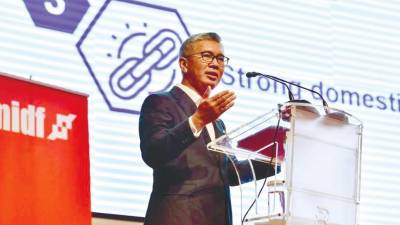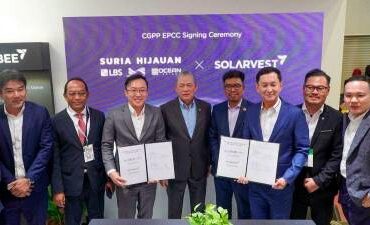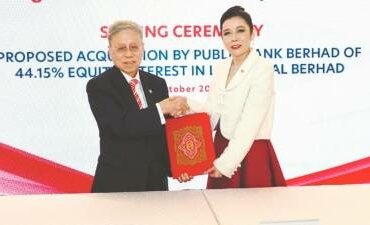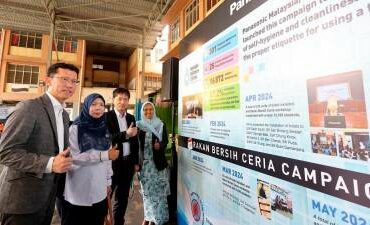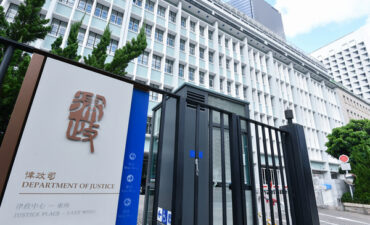KUALA LUMPUR: The government is optimistic about the country’s investment outlook for the upcoming year, particularly in foreign direct investment (FDI), said Investment, Trade and Industry Minister Tengku Datuk Seri Zafrul Abdul Aziz.
In the first six months of the year, he said total investment was about RM132 billion and that is already around 60% of the government target for the year.
“So it is slightly above target, and we hope that this momentum can continue. But I am more confident about the prospects for next year, given what is in the pipeline. In terms of FDI, I’m very optimistic that next year will be a stronger year for Malaysia,” he told reporters at the Malaysian Industrial Development Finance Bhd (MIDF) Roundtable Dialogue today to discuss the New Industrial Master Plan 2030 (NIMP 2030): Curating Malaysia’s Sustainable Investments and Growth.
He stated that currently, out of the RM132 billion worth of investment, nearly half of it is Domestic Direct Investment (DDI).
“There is a correlation between FDI and DDI, and it is a positive correlation. An increase in FDI always correlates positively with the increase of DDI because of spillover. That’s why it is important for the local ecosystem to support FDI,” he added.
Tengku Zafrul outlined three reasons for attracting FDI into the nation – job creation, spillover effects as well as enhancing economic complexity.
“Why do we want to attract FDI? There are three main reasons. One is of course it creates jobs. Secondly, we want to ensure that it creates spillover to our industries … be it construction sector or supplier, etc.
“And the third and final reason is also to ensure that we increase our economic complexity so that we become a trading nation, we are an export nation … our trade-to-GDP ratio last year was 160%. Therefore, we are an open economy. So we want to make sure that when we bring in these investors, we can support our country as a nation that exports, as a trading nation,” he said.
The government has proposed a disbursement of RM200 million for the implementation of programmes and initiatives planned under NIMP 2030 next year, as announced by Prime Minister Datuk Seri Anwar Ibrahim when he presented the Budget 2024 last Friday.
Tengku Zafrul commented that the RM200 million budget for NIMP 2030 will benefit industries aligning with the four key missions, including the advancement of the country’s economic complexity.
“So for industries that are moving up the value chain and require support will qualify for this … but this is from the government side. There’s also support from the private side, especially (and hopefully), from both financial institutions and the capital market,” he added.
NIMP four missions are to advance economic complexity, to tech up for a digitally vibrant nation, to push for net-zero carbon emission, and to safeguard economic security and inclusivity.
Tengku Zafrul also said that Malaysia is leveraging its semiconductor capabilities to advance in the electric vehicle (EV) sector.
He highlighted that Malaysia boasts 30% of the global market share in semiconductor manufacturing.
“When I talk about EV, it’s not about the charger, the vehicle. Why are we attractive? And why many EV companies are coming here? It’s because of our semiconductor ecosystem. We have 30% of the global market share. In fact, we even have an agreement with the US on the supply of semiconductor, because we supply 25% of the US semiconductors,” he said in a Q&A session.
Notably, he added, companies like Tesla are setting up operations in the country due to the strong semiconductor supply chain.
“Why did Tesla come here? It’s not because we have a big market (with a population of 33 million). But it’s because many of the procurement…equipment of EV cars…the supply chain is from here. So the reason why we talk about EV is because we have a developed E&E sector,” he said.
He added that the objective isn’t to compete in terms of the number of vehicles produced, but rather to ensure the entire EV ecosystem is thriving.
“We have over 4,000 companies as you know in the semiconductor industry. It is huge, it is big, in Malaysia, it’s not like in the 1970s. So this is our competitive advantage. That is the reason why we talk about EV,” he said.

